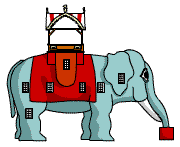To Whom It May Concern (holding file)
Created | Updated Jun 24, 2012

Earth, Canada, July Ist, 2012
Dear Sir or Madam,
It has come to my attention that an anniversary of great importance is upon us, the celebration of Canada's birthday, July 1st.
On this date in 1867, Queen Victoria proclaimed into law the British North America Act, a piece of legislation that had spent a couple of years being bounced around the British Houses of Parliament while Canadian diplomats impatiently paced the halls of Westminster fearful that the million-strong standing army left over from the American Civil War would be sent north to annex the entire continent.
There had been several minor incursions all of which were successfully repulsed for lack of official support from Washington where a bad case of war-weariness had emasculated the Administration even as battle-hardened gangs of veterans roamed the countryside in search of plunder west and north of the newly re-forged Union.
No doubt there is great reason to celebrate the occasion of the Act of July 1st, 1867 and to offer the heartiest congratulations and thanks to all who have been involved. But the fact is that Canada had come into being as a national identity during the War of 1812.
When the American states called their Congressional Congress and issued their Declaration of Independence July 4th, 1776,
what is today Canada was largely unsettled, unexplored and of no great interest to the 13 states who formed the first Union and declared war on the King of England.
It was this Revolutionary War that helped to populate the Canadian wilderness and established its first permanent settlements and towns. In 1776 Canada consisted of a Royal Navy port at Halifax and a few captured French towns in Quebec. English sailors and French peasants obviously had not been invited to join in the formation of the rebellious American Republic.
It is often forgotten that in the 13 states that participated in the Revolution there was no unanimous consensus for establishment of a new independent Republic and those who did not support the idea were called Royalists - they were beaten, robbed, raped, killed or became Refugees running for their lives from the savagery and anarchy of the American Revolutionaries.
Remaining loyal to the English King, these Tories or Royalists were persecuted and chased northward by the Revolutionaries. Loyalists came in their tens of thousands and established towns that quickly rivaled Boston and New York in population in the years following the Revolution. Hacked out of the wilderness many of these huge settlements have since fallen away to village status as resources, industry and economics have changed but most have since become the major cities of eastern Canada.
The newly populated provinces of Canada remained as colonies of England and were ruled by apppointed Governors who continued to enforce British Law and Taxes and commercial controls through the power of the Red Coated Army and the Many Gunned Royal Navy.
In 1812, the American President grew weary of complaints that the Royal Navy was still controlling American commerce on the high seas,
capturing cargoes and kidnapping any 'American' sailors as deserters and making them serve in the King's Navy or be hanged.
Thinking that Britain would be pre-occupied fighting Napoleon in Europe he dared to declare war and made plans to invade and capture
the British towns and forts of Canada. He didn't count on the native populations' peaceful alliances with the earliest French and later English settlers. Detroit was put to the torch and the Indians under Tecumseh slaughtered his army.
Later, the British Navy sailed up to the White House and burned it down.
But the real story of the War of 1812 was a young British General named Brock who gave his life defending the Canadian side of the Niagara River at Queenston Heights. It was at the moment of Brock's death and the attack he inspired that Canada as a nation was born.
http://friendsoffortgeorge.ca/bm.htm
http://en.wikipedia.org/wiki/Brock's_Monument
I remain your most loyal and least dutiful savant,
peace,
~jwf~
To Whom It May Concern
Archive

